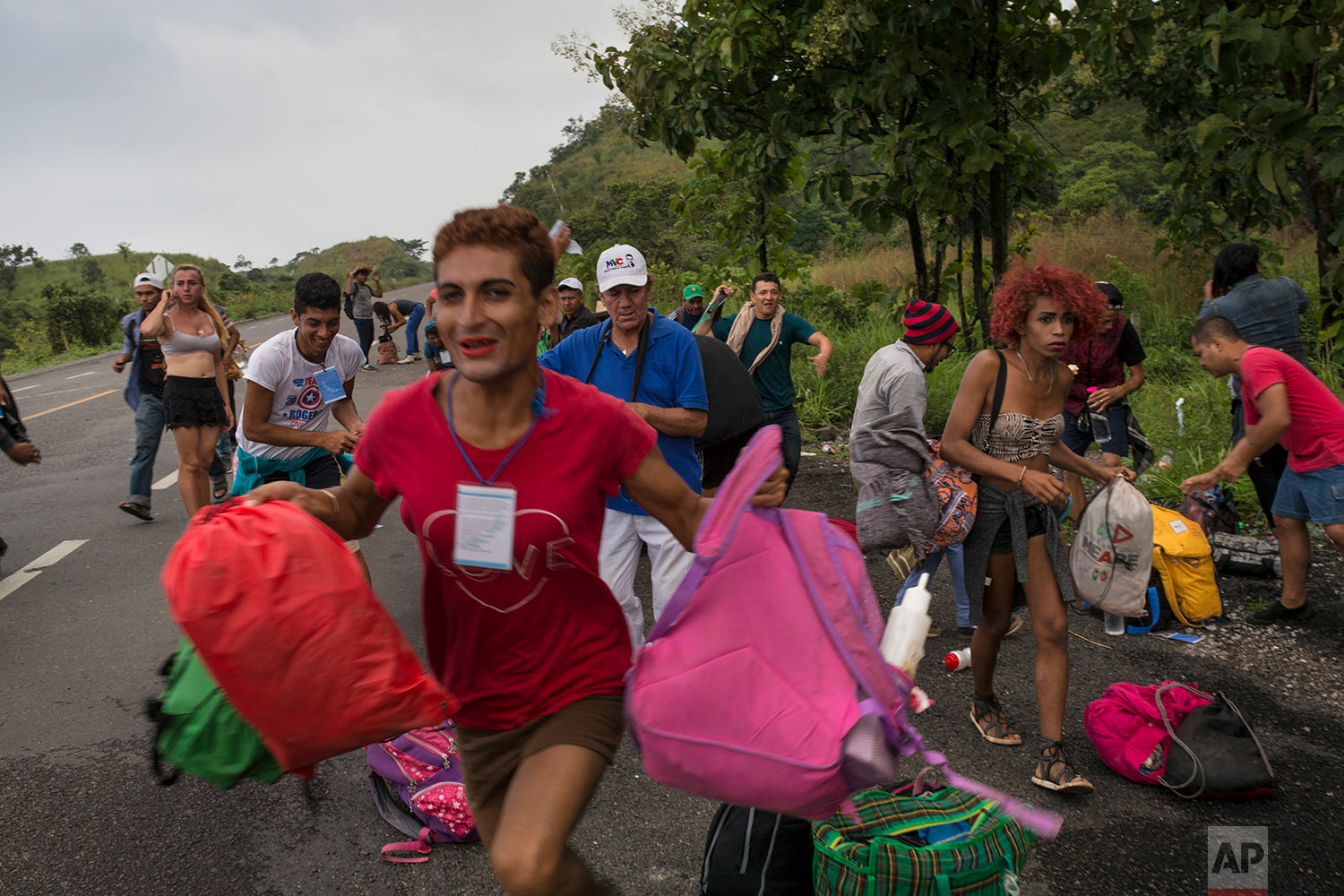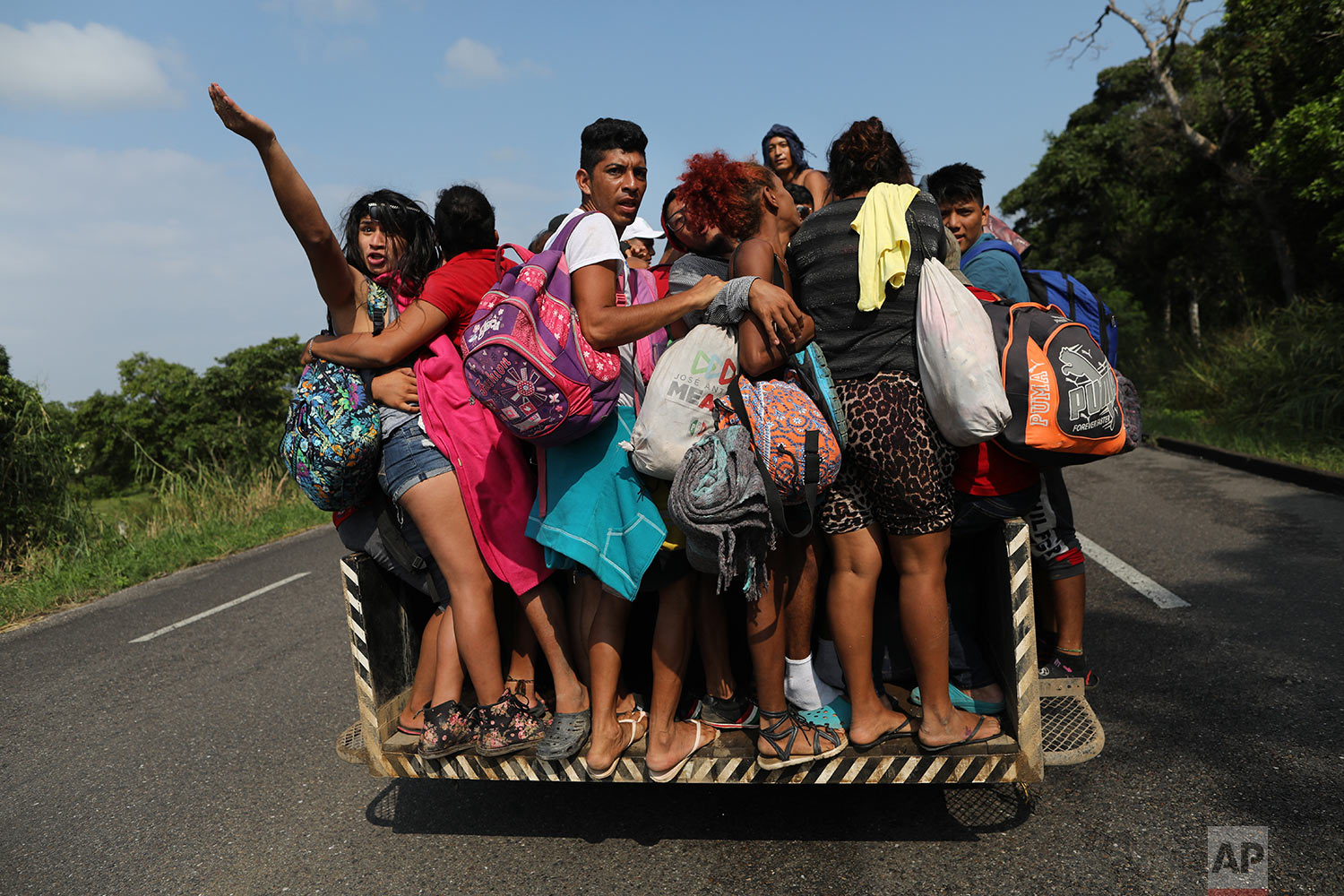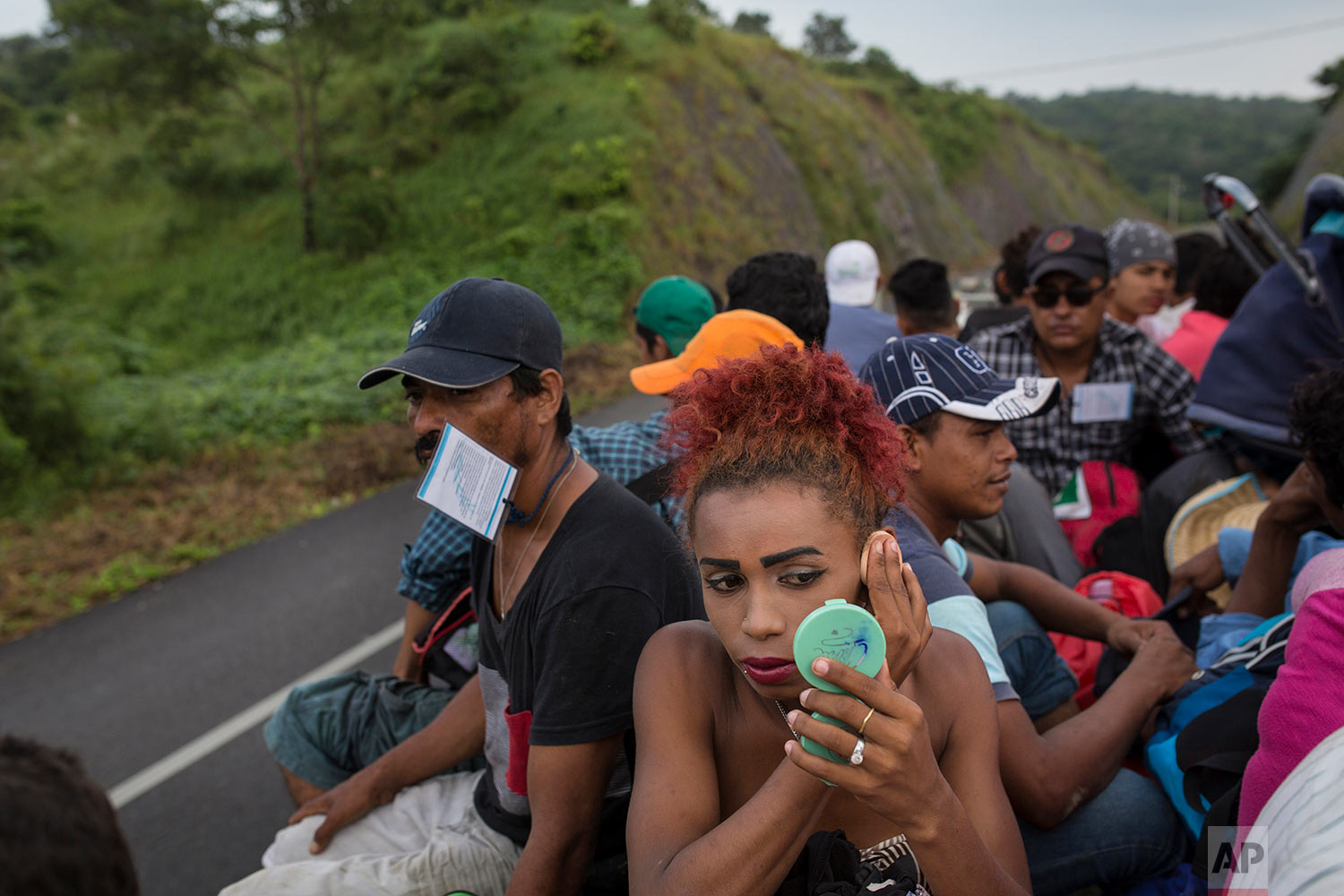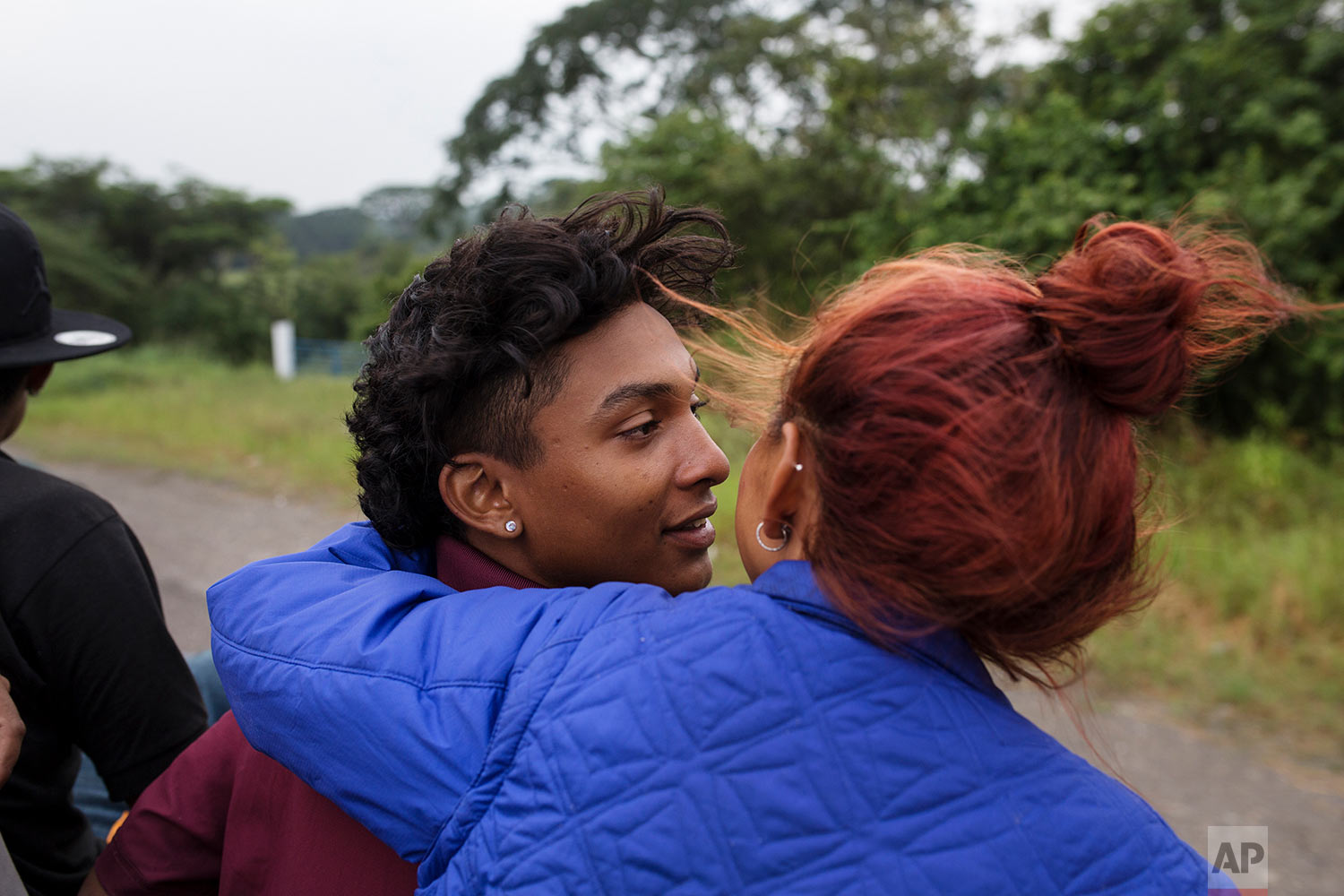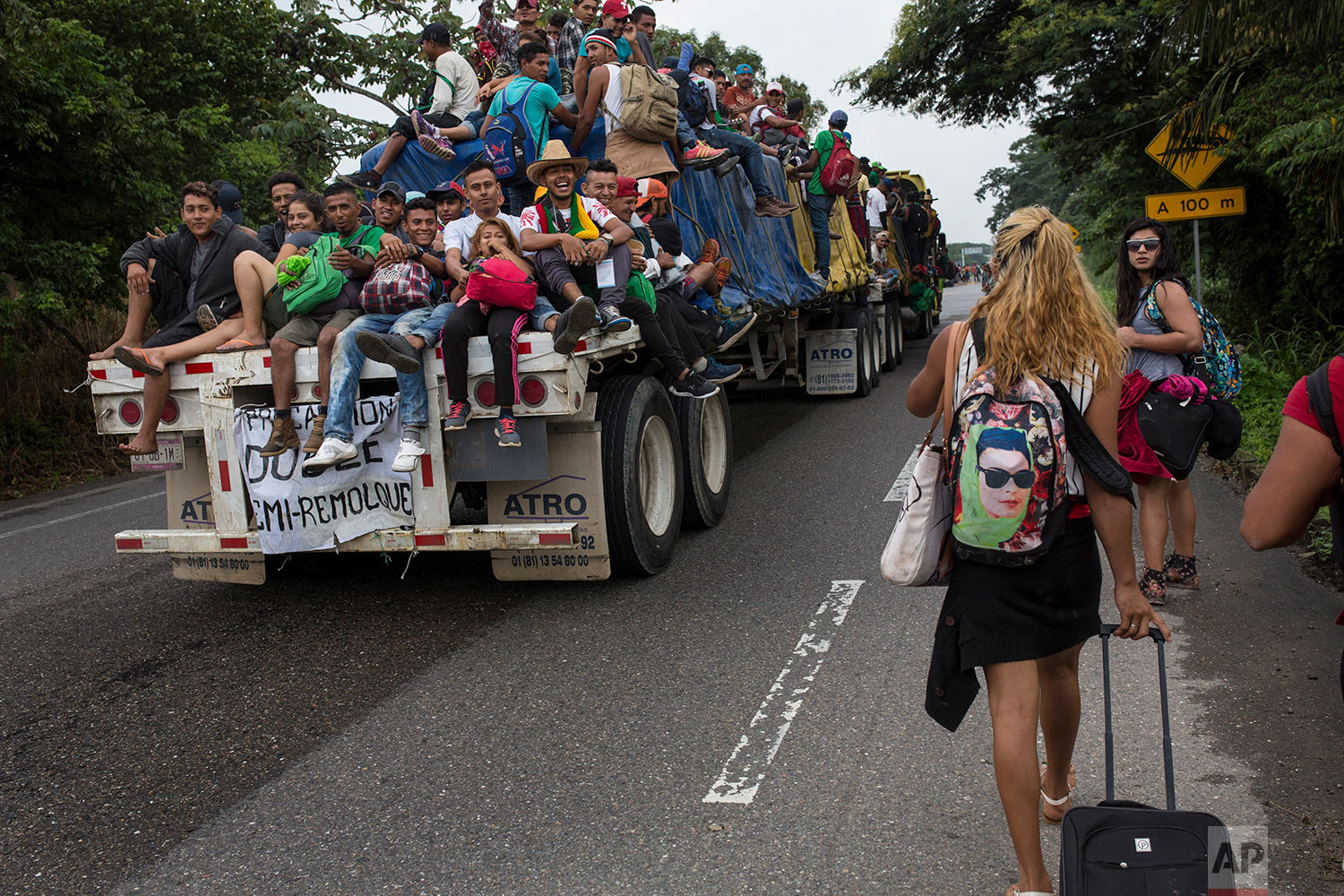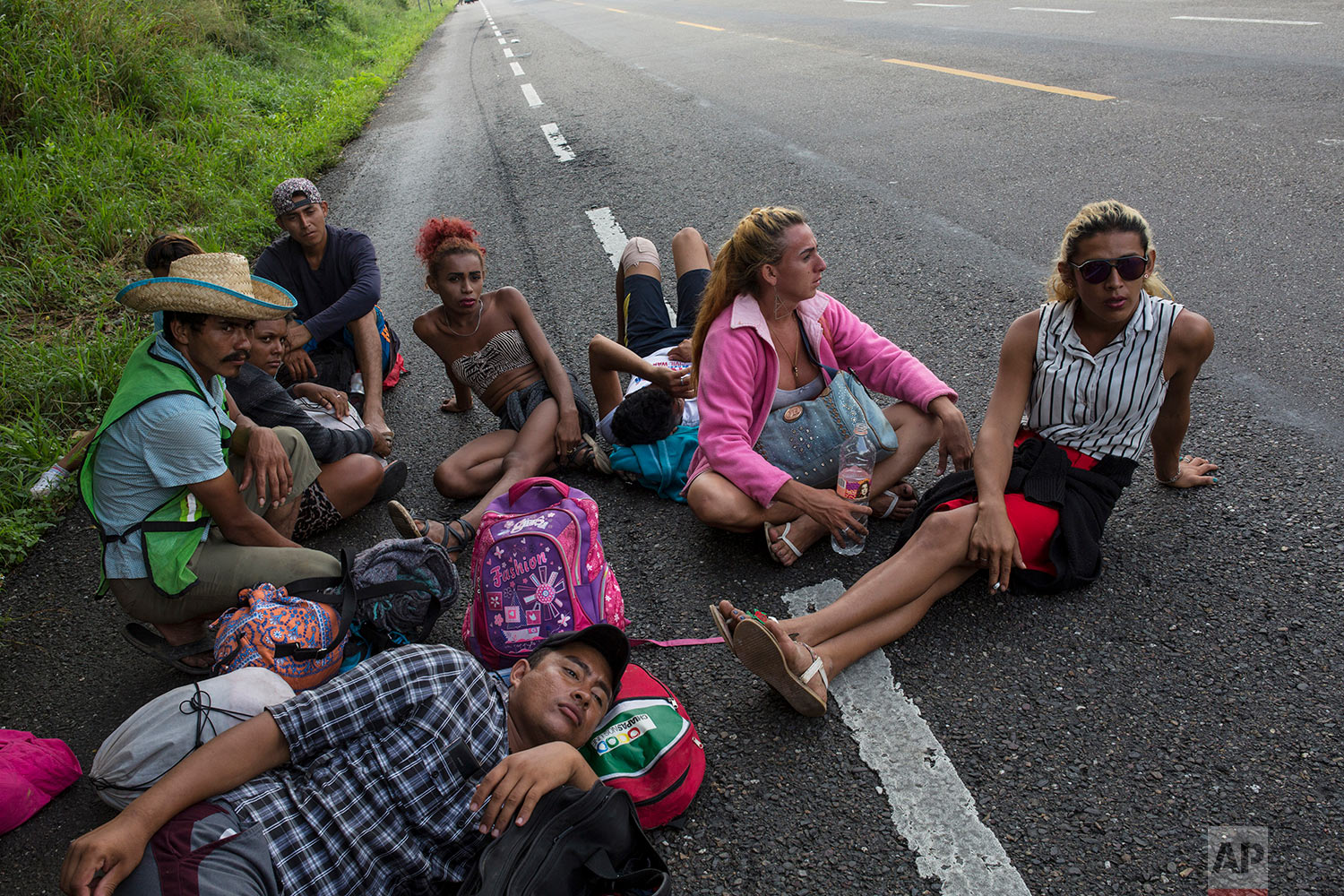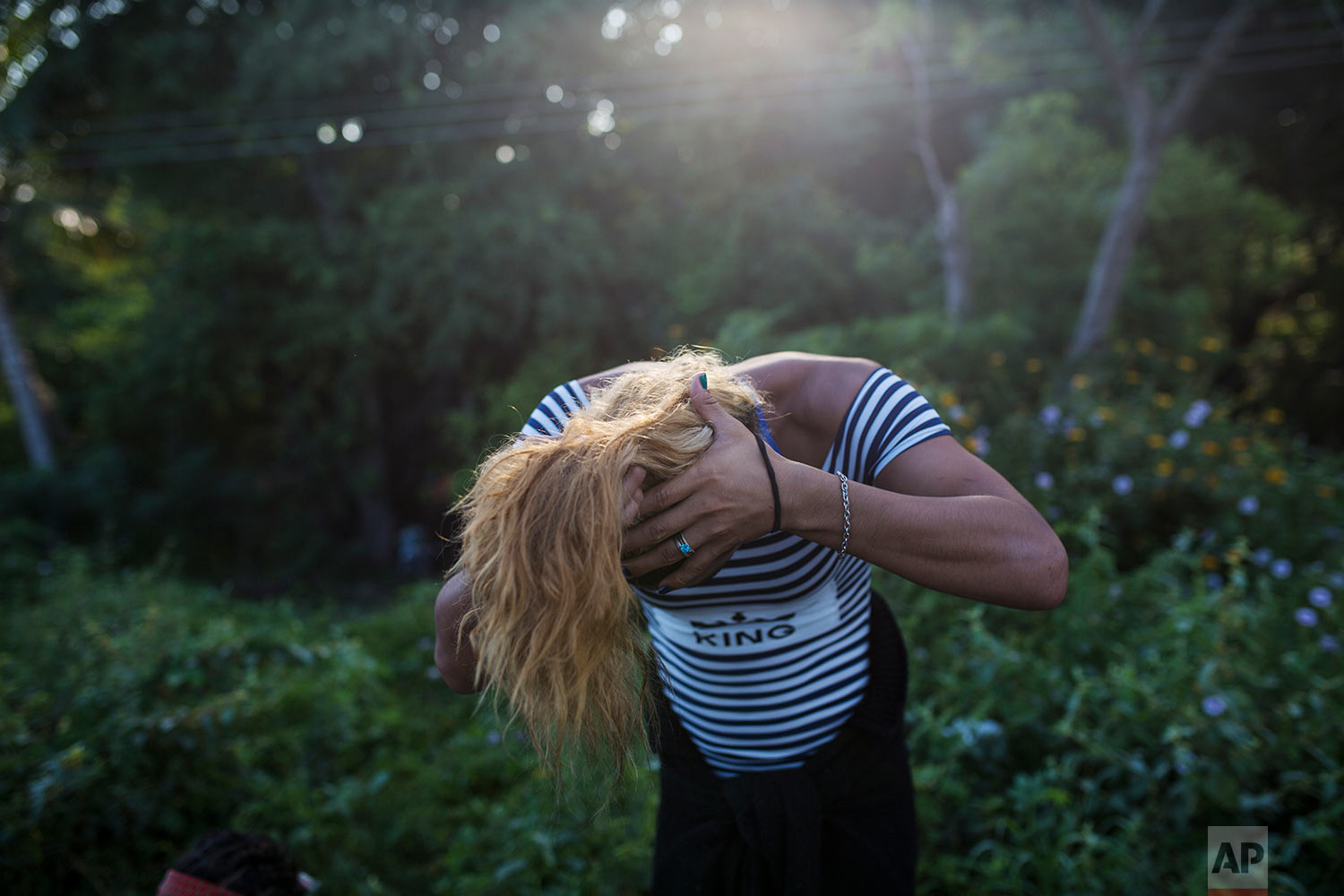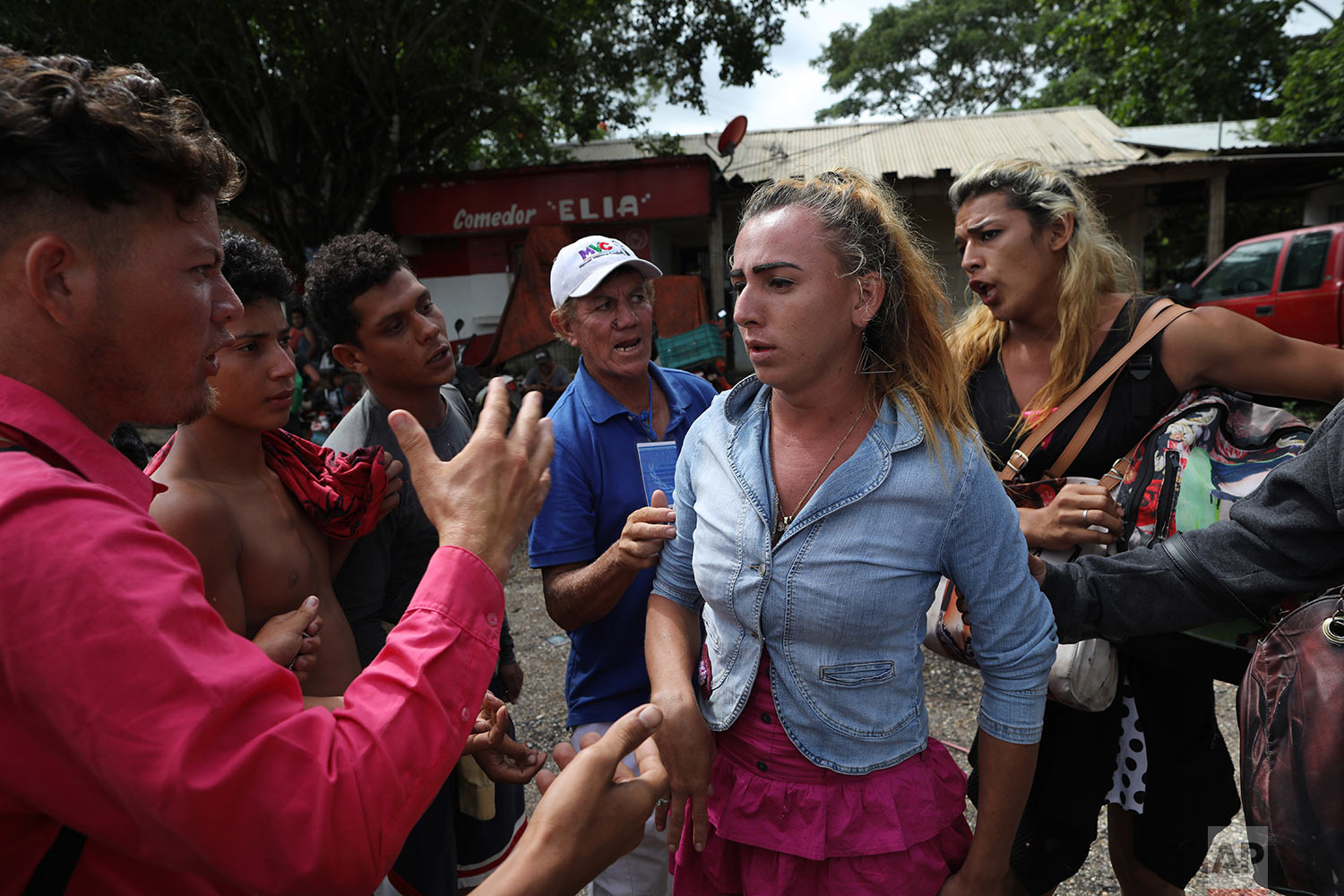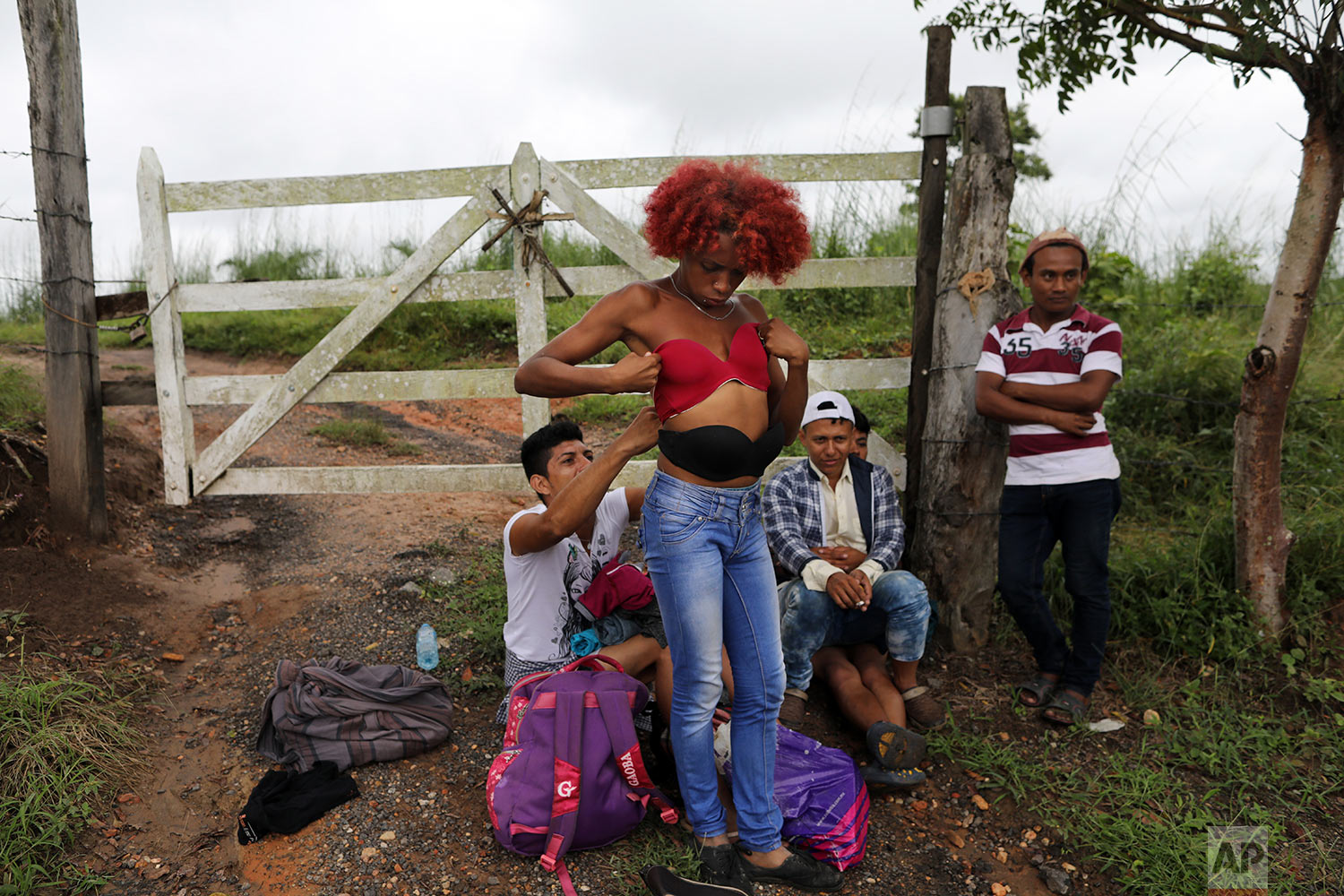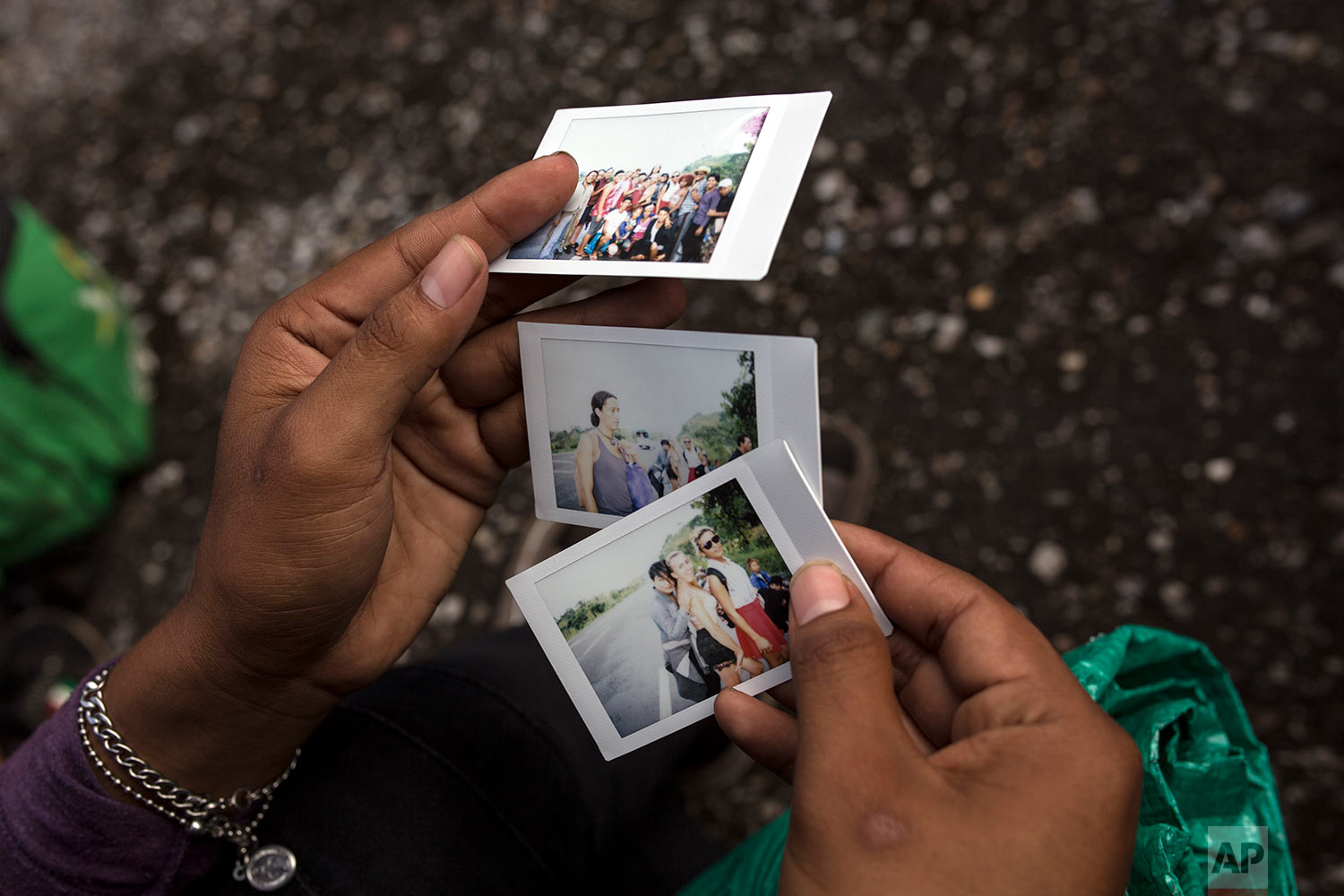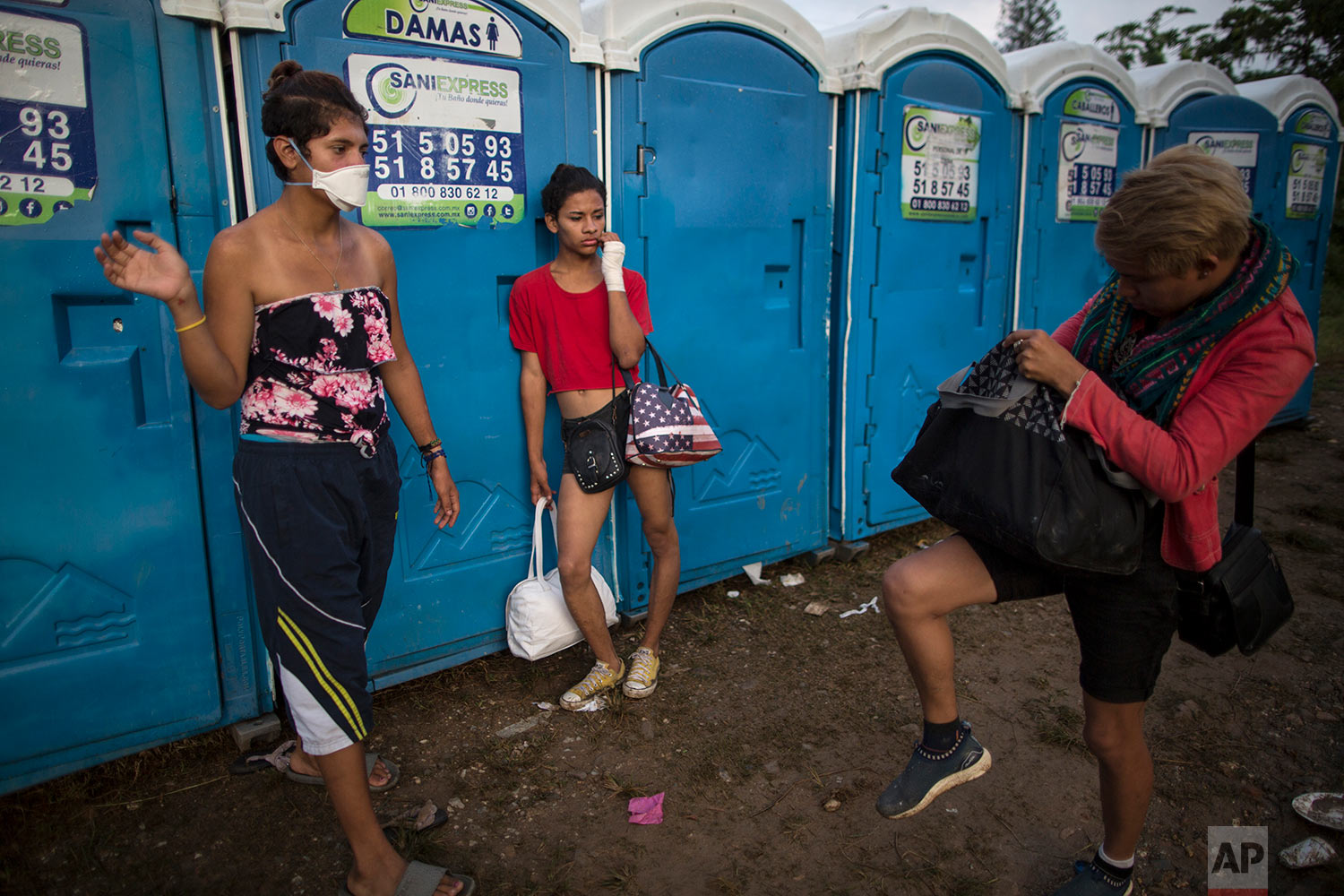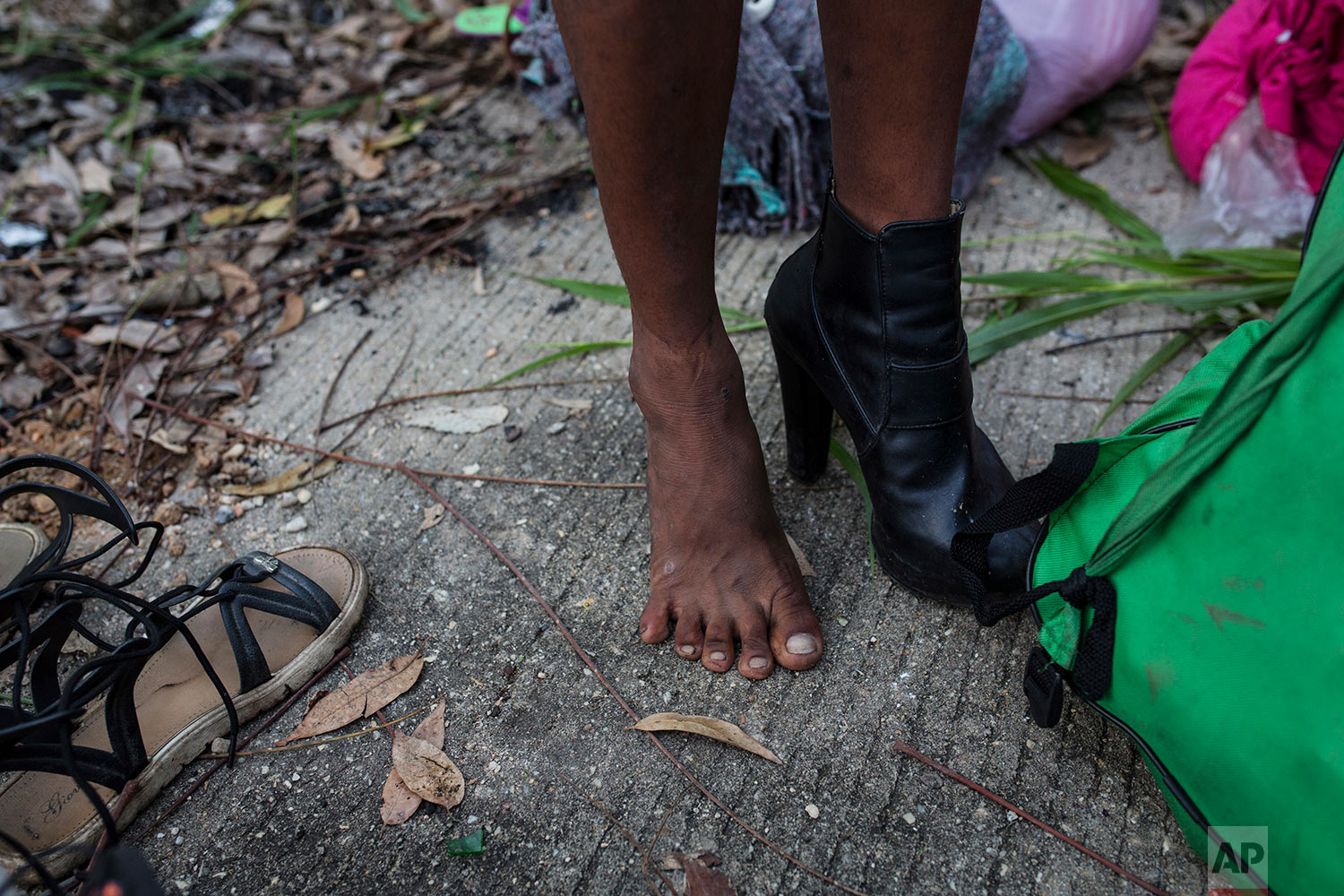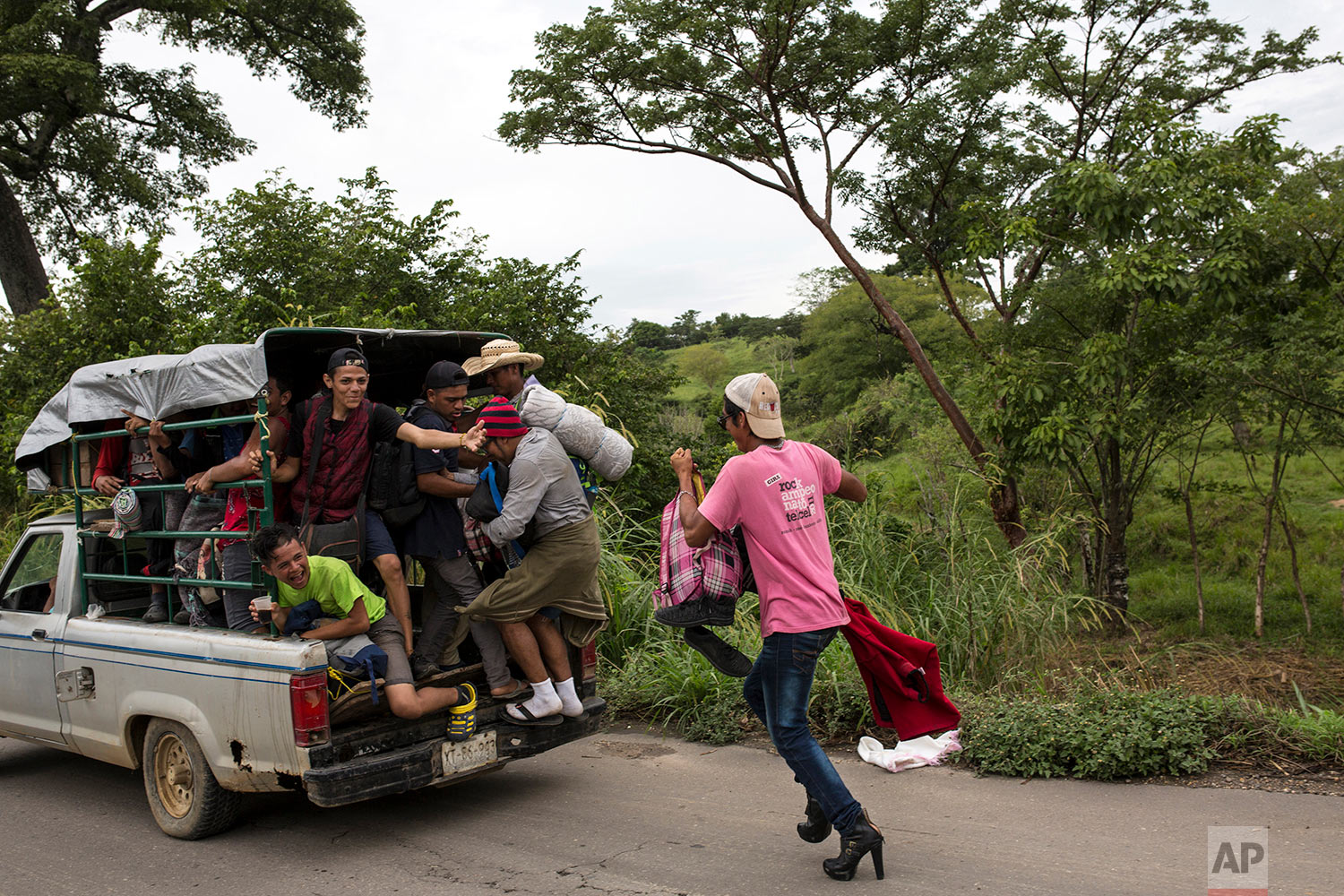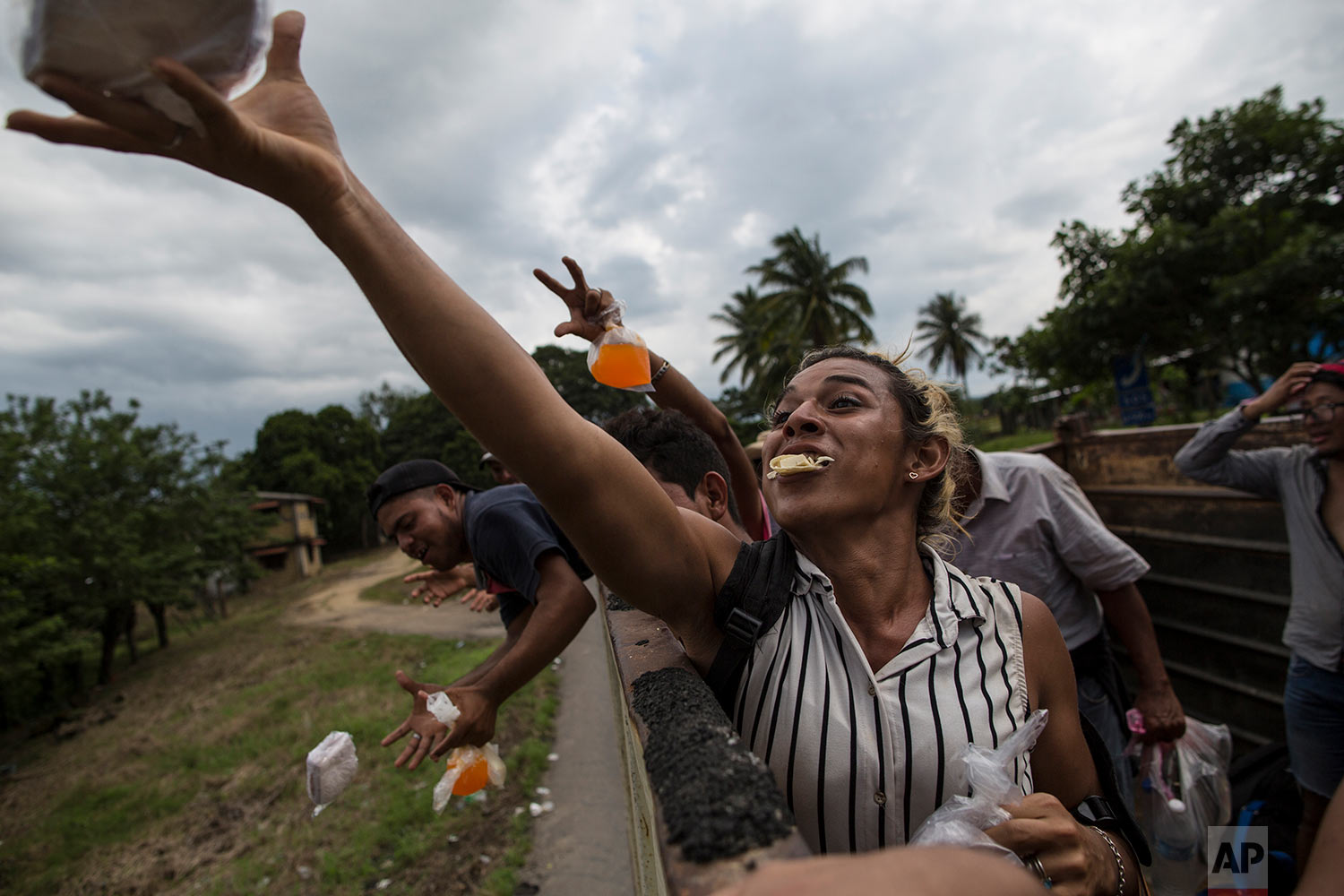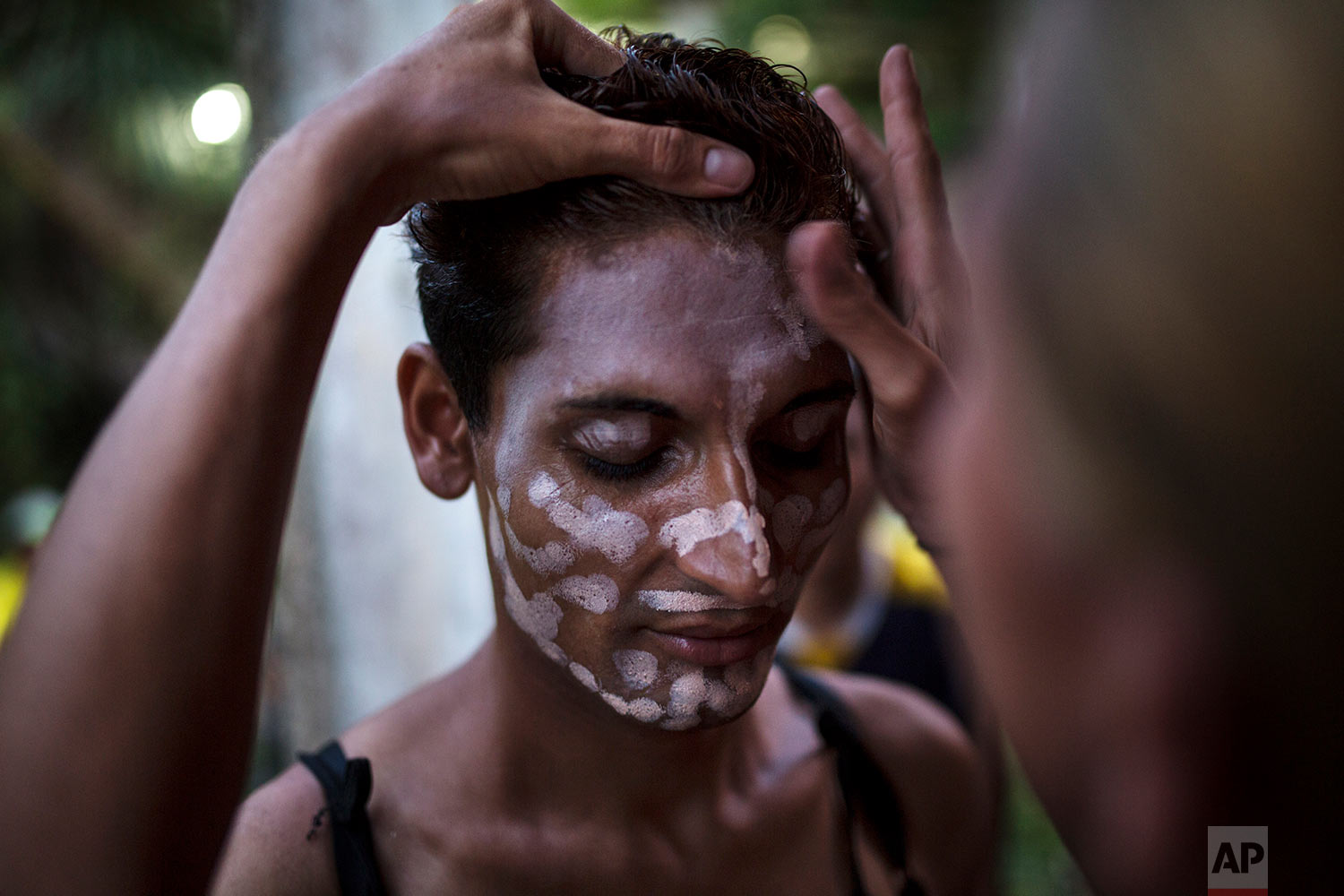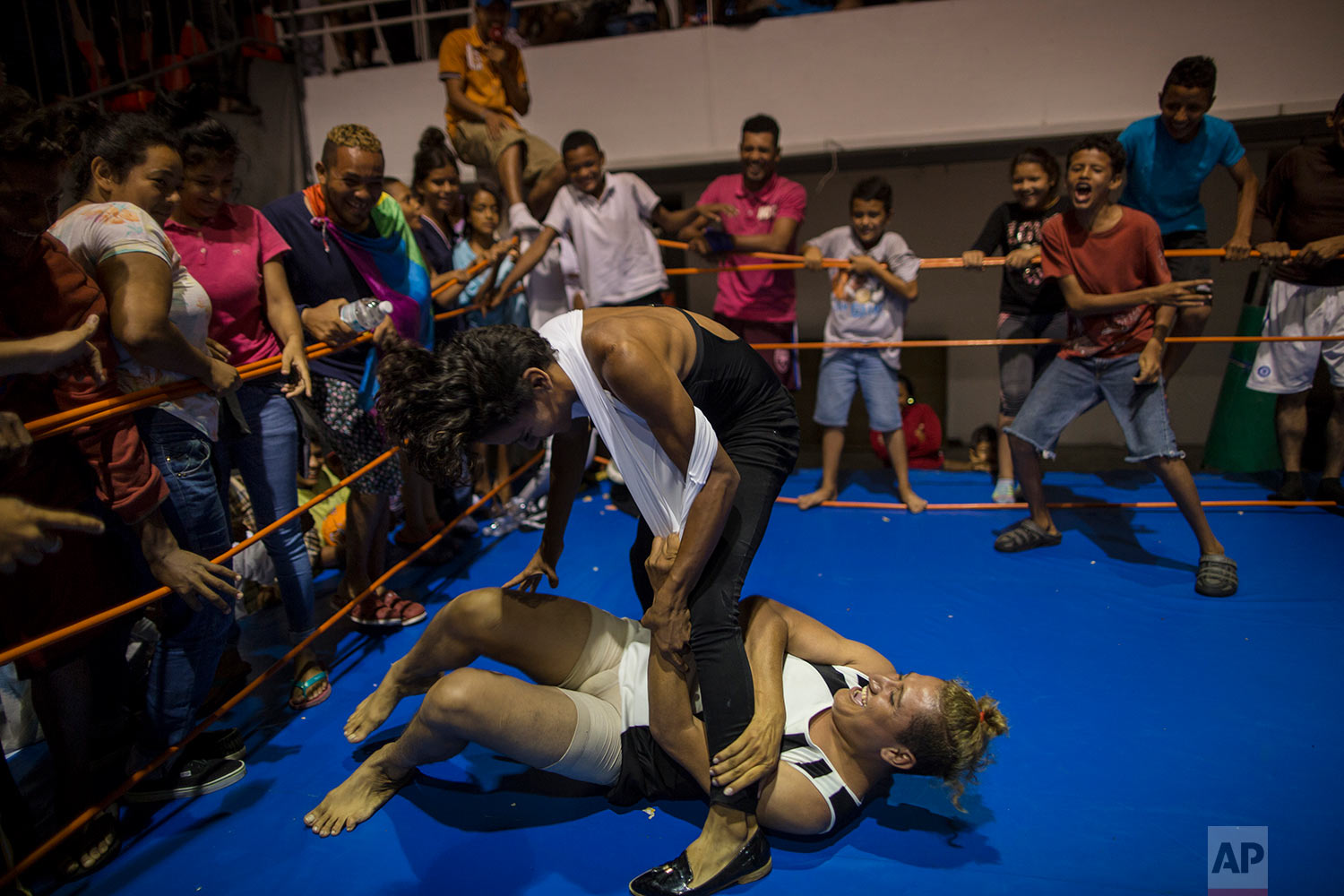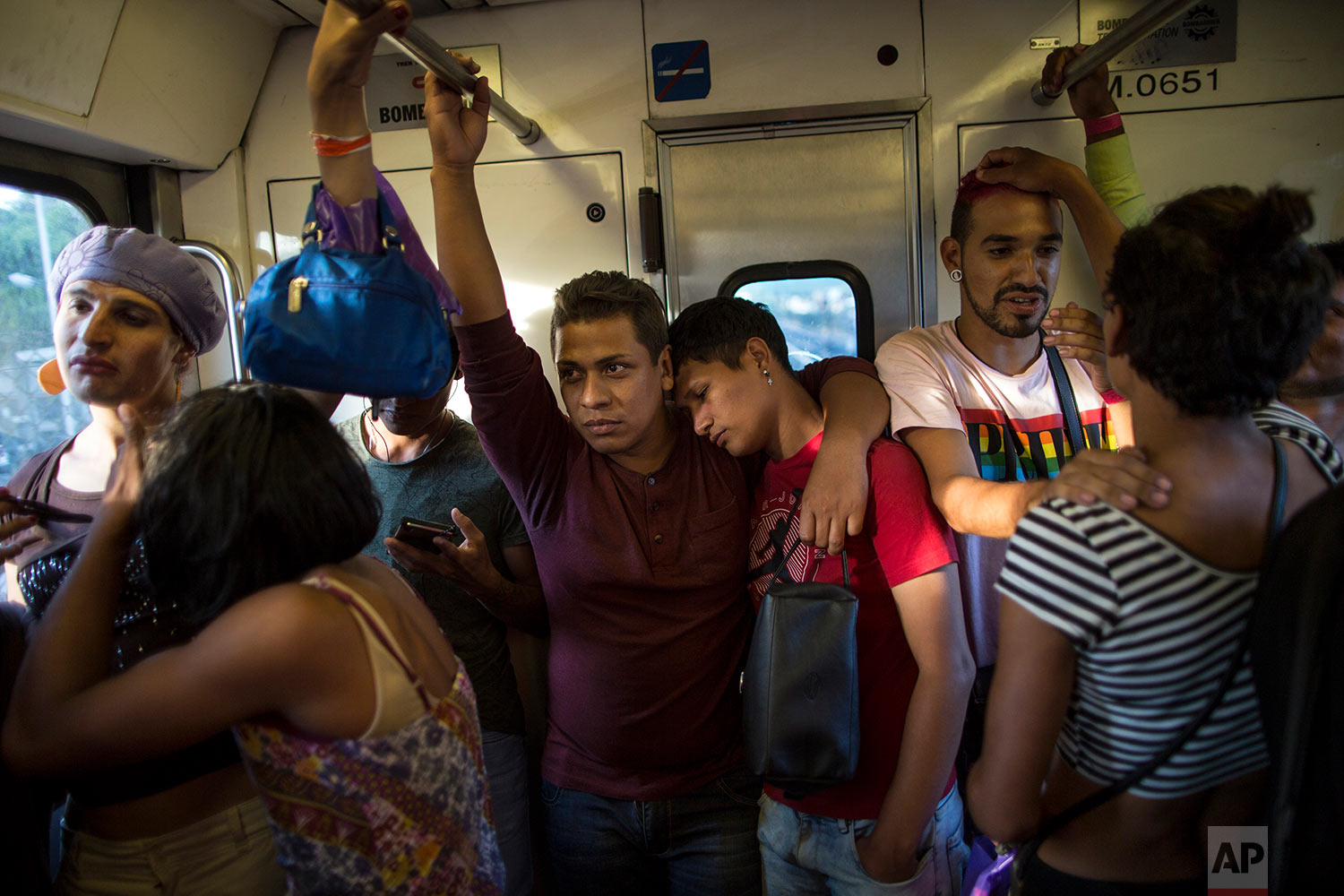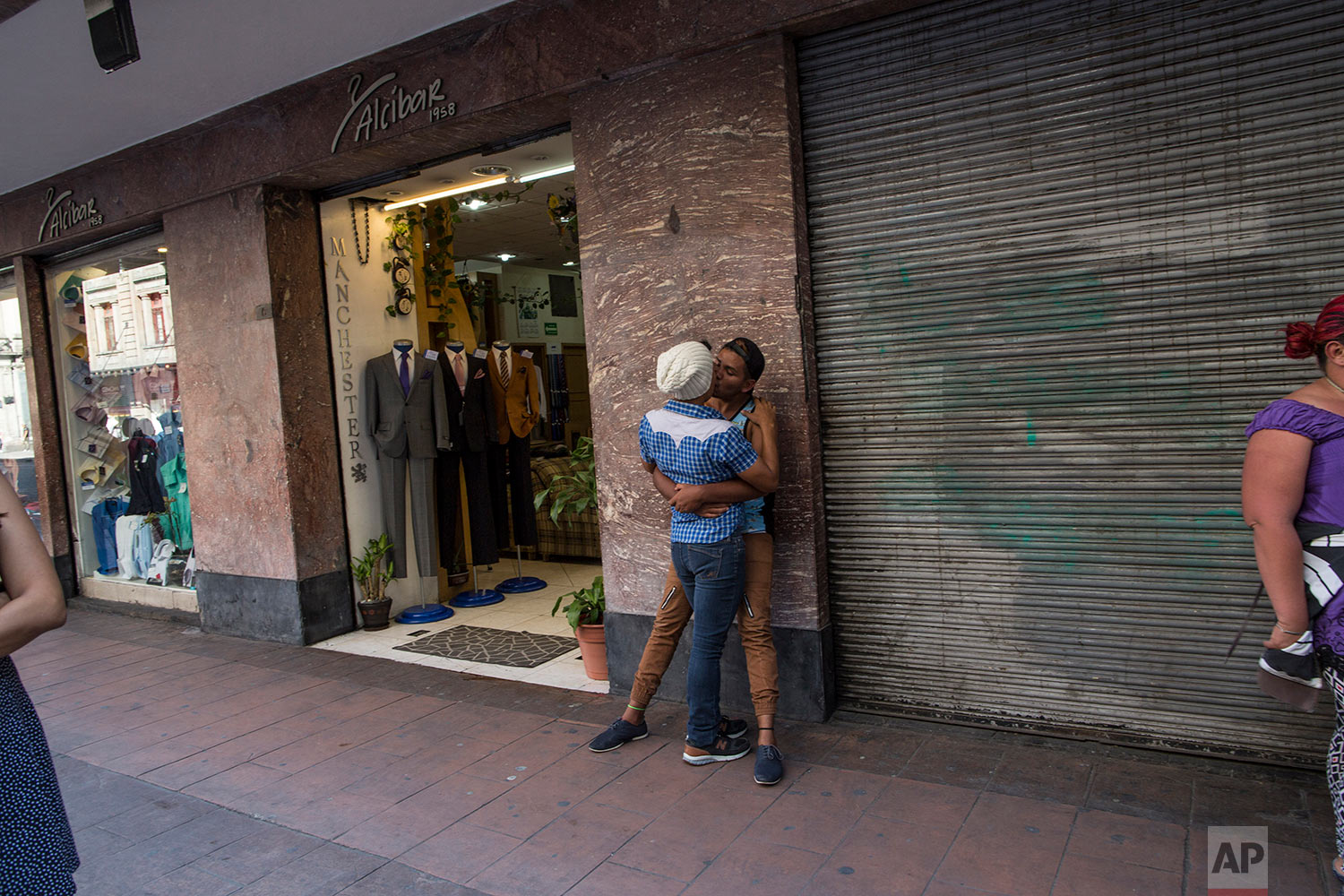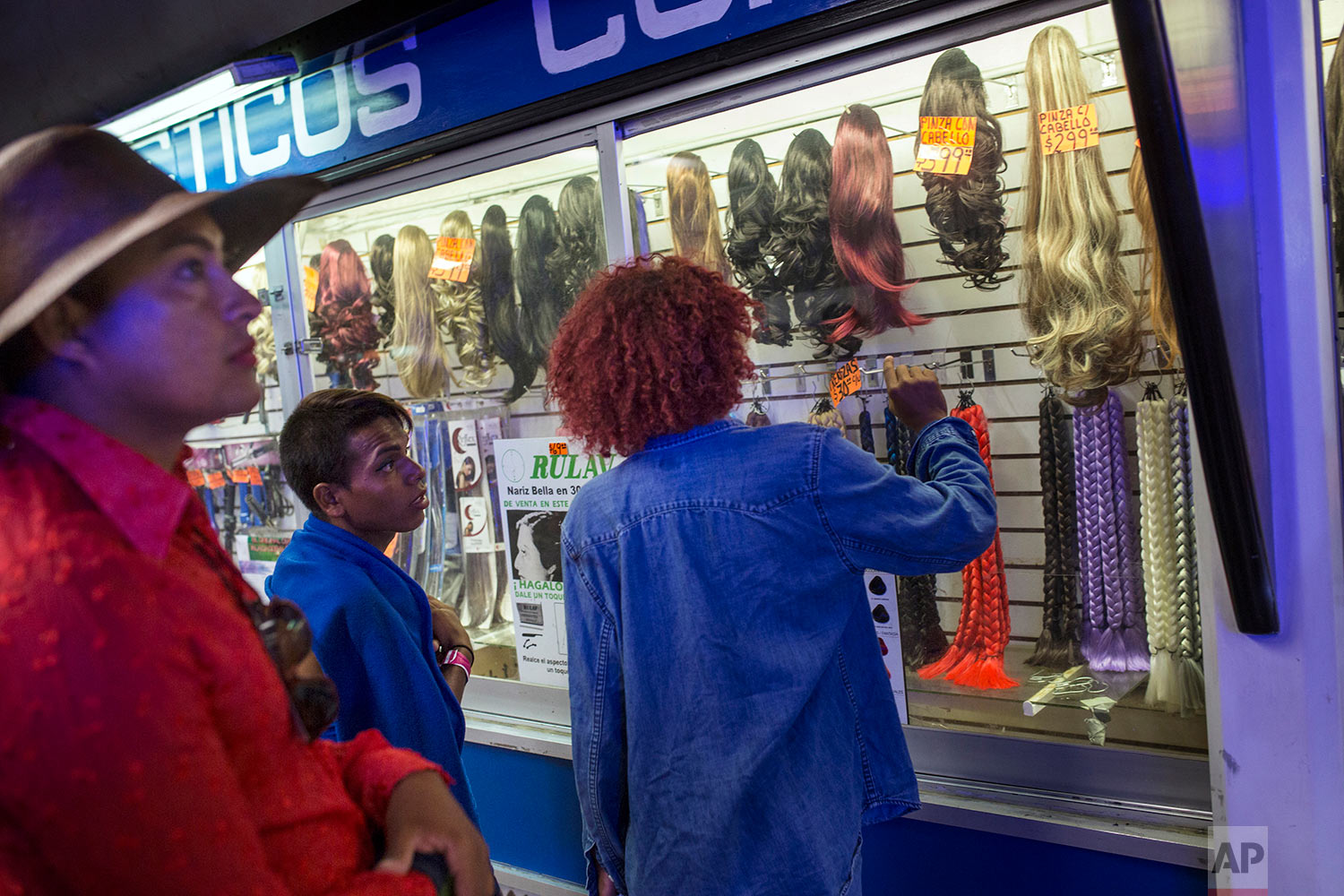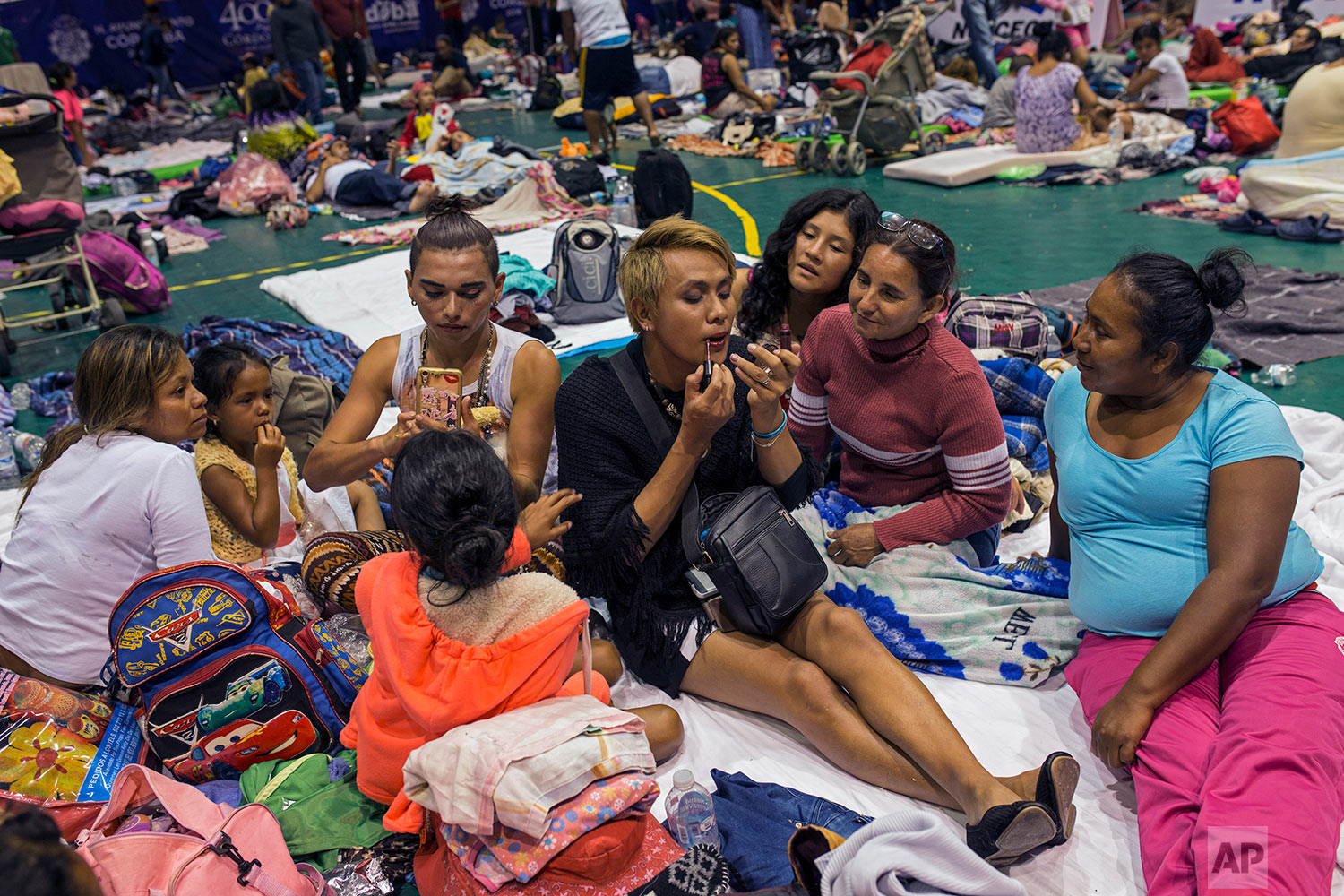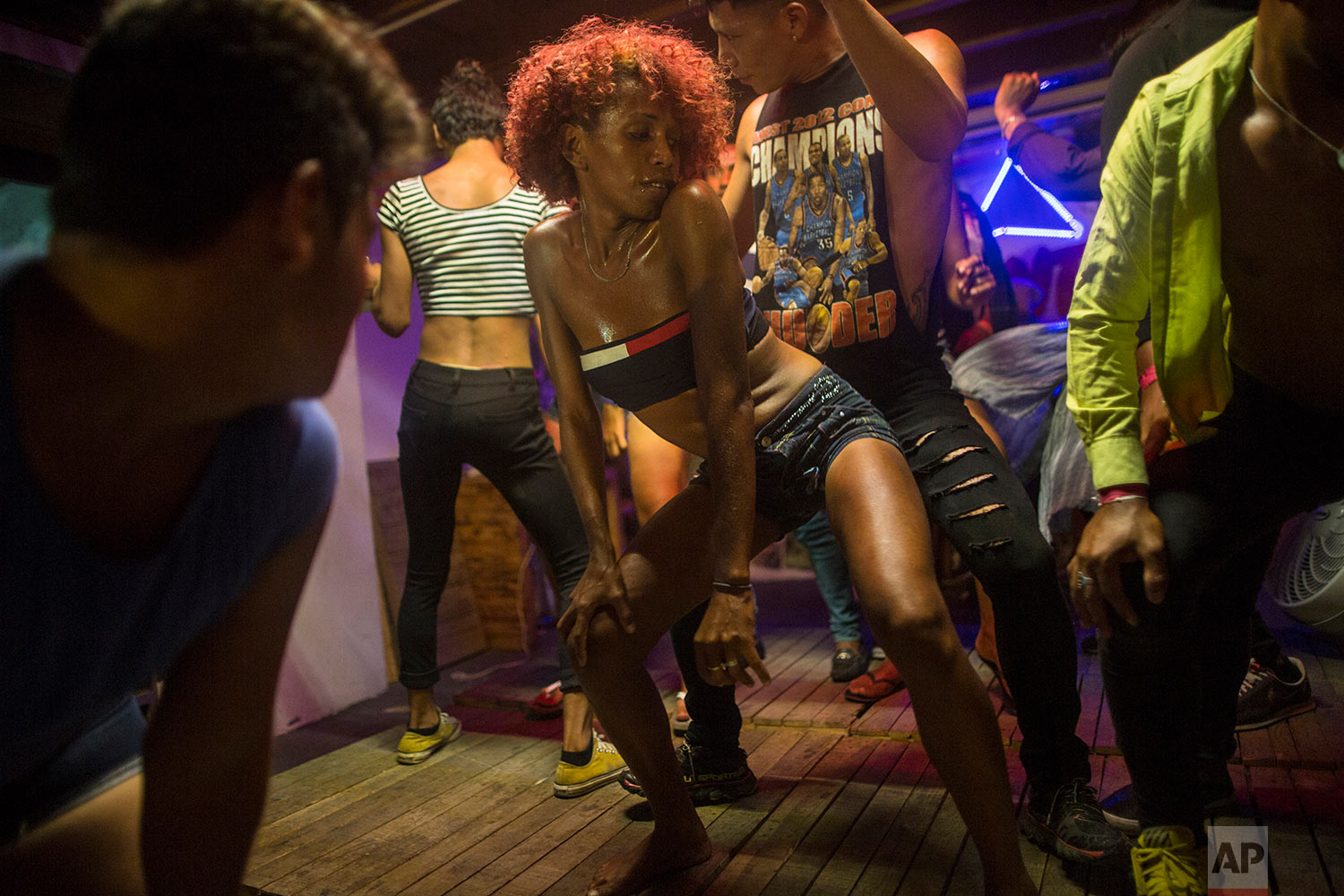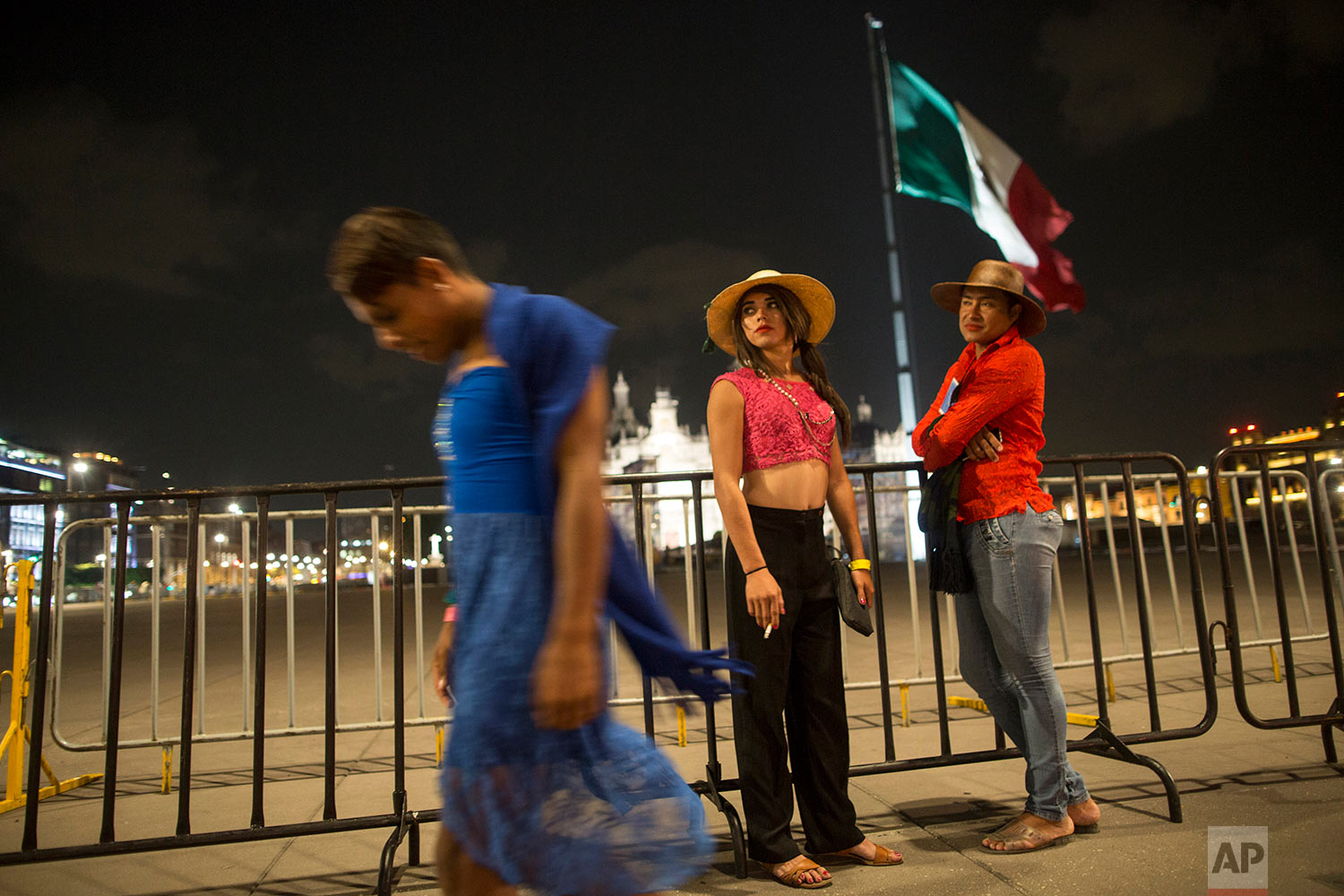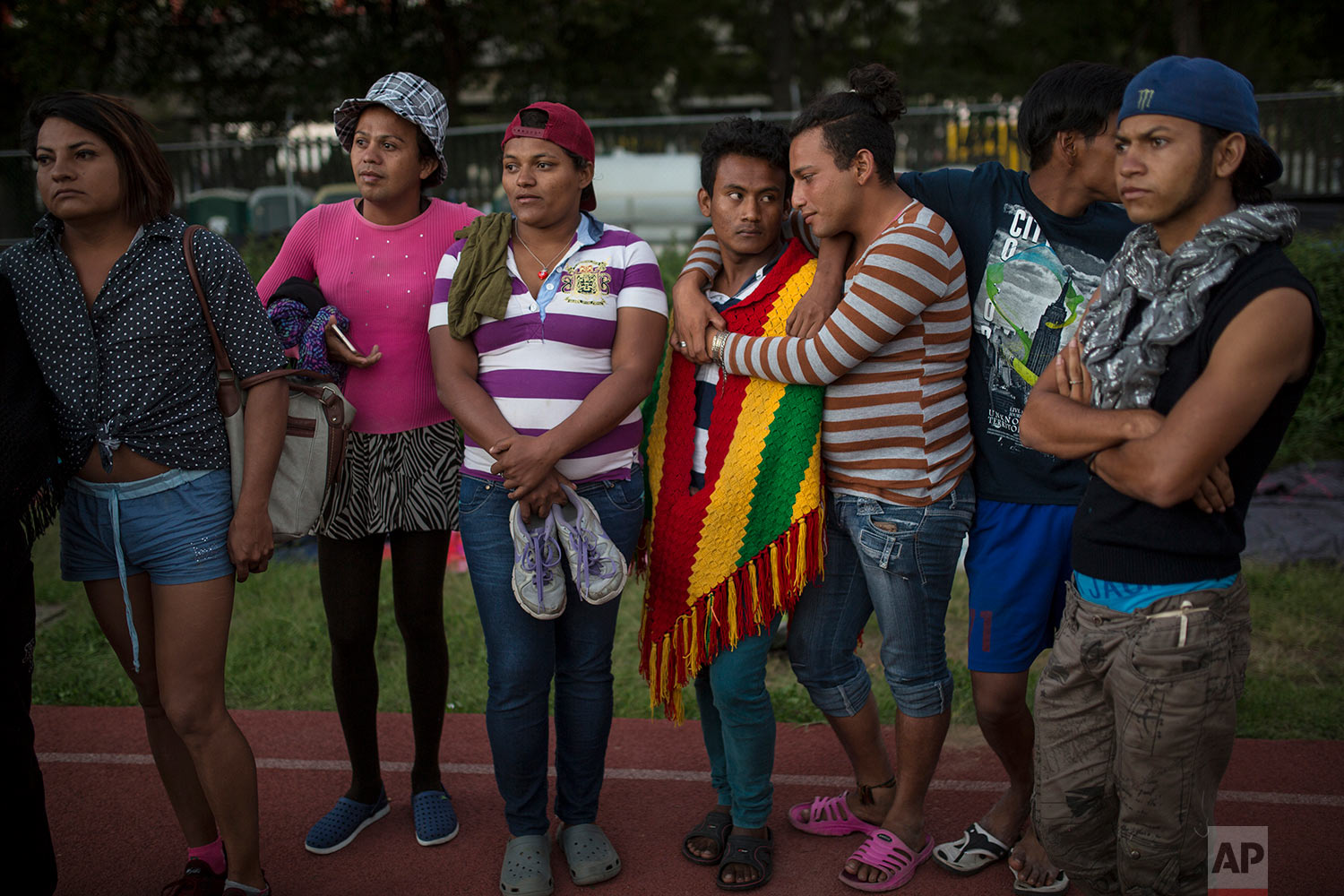LGBTQ migrants stick together for safety in Migrant Caravan

Dozens of transgender women and gay men in the caravan moving through Mexico with hopes of seeking asylum in the United States have banded together for protection — not from the uncertainty of a journey fraught with danger from the gangs who prey on migrants but from their fellow travelers.
Fleeing violence and discrimination back home because of their gender identity or sexual orientation, these LGBTQ migrants have found the journey north to be just as threatening amid catcalls and even physical abuse.
“Sweet little thing!” ″Baby, where you going?” ″How much do you charge?” These all-too-familiar jeers are spewed at them as they make their way with the caravan of several thousand.
Reports are common in much of Central America of LGBTQ people being murdered, assaulted and discriminated against, due to their gender identity or sexual orientation.
But getting U.S. asylum is difficult even with proof someone has been the victim of persecution for being transgender, said Lynly Egyes, director of litigation at the Transgender Law Center in Oakland, California.
It often takes days or weeks for transgender immigrants to get a hearing before an asylum officer. If they are allowed to move forward in the process, many are traumatized and struggle to tell their story, Egyes said. They are also much less likely to be granted asylum without a lawyer.
“It is a horrifying process, and not everybody makes it through,” she said.
Many of the migrants have said they joined the caravan because it offered safety in numbers. The 50 or so LGBTQ migrants traveling together, most of them in their 20s but some as young as 17 or as old as 60, say they, too, banded together for safety — a sort of caravan within the caravan.
Sticking out in their bright-colored clothing and makeup, the group has suffered verbal harassment, especially from men, and has been the victim of robbery and other aggressions. One recent day as they walked in a row on the highway to Isla, in the Mexican Gulf coast state of Veracruz, a group of fellow migrants passed by on a flatbed truck and showered them with water, oranges, rinds and other refuse.
Fearful of being attacked more violently or sexually assaulted, they stick by each other’s sides 24 hours a day, walking and sleeping in a group and even using the buddy system for going to the bathroom.
In Matias Romero, in the southern Mexican state of Oaxaca, rather than sleep outdoors they took over an abandoned hotel damaged in last year’s deadly earthquake. Dirty, windowless and with no electricity or running water, it was nonetheless a place to have a roof over their heads and be safe. They bathed by the light of a small lantern, dressed themselves and applied makeup as dozens of men milled about outside.
Each night “the girls,” as they call themselves, sift through piles of donated clothing to try to look as sharp as possible. And they face a dilemma: Where to dress and relieve themselves?
“We have problems when it comes time to go to the bathroom,” said Nakai Flotte, a transgender woman and activist. “We bathe in the men’s, sometimes in the women’s, but it’s difficult. There isn’t one for us.”
Flotte was accompanying the migrants to provide support and information about making asylum claims.
The U.S. “should take into account their condition of vulnerability and violence,” she said.
However, a decision by then Attorney General Jeff Sessions this year to deny asylum to victims of domestic and gang violence could also have a negative impact on transgender women and men because many are victims of gang violence who are targeted for being transgender.
“I know it will be difficult to win asylum,” said Alexa Amaya, a 24-year-old from Honduras, “but we have to make the attempt.”
Text from the AP news story, In Mexico Caravan, LGBTQ migrants stick together for safety, by Sonia Perez D.
Photos by Rodrigo Abd

